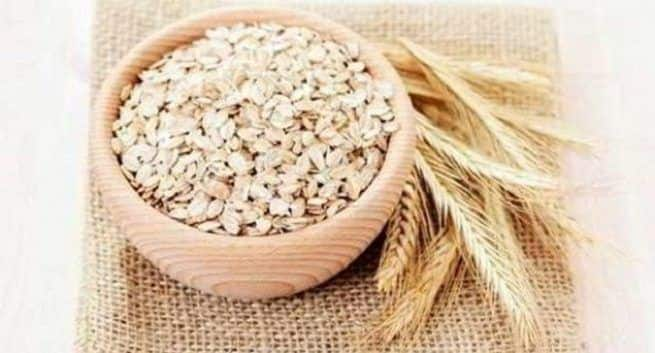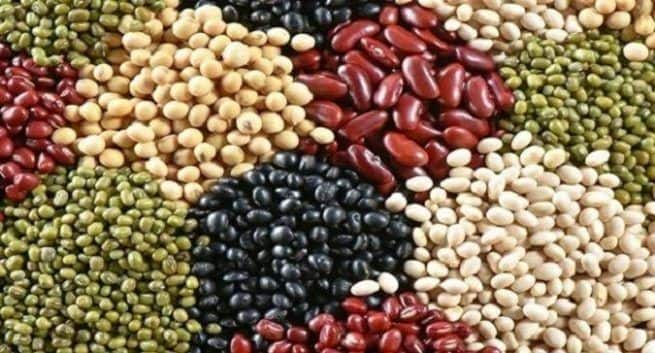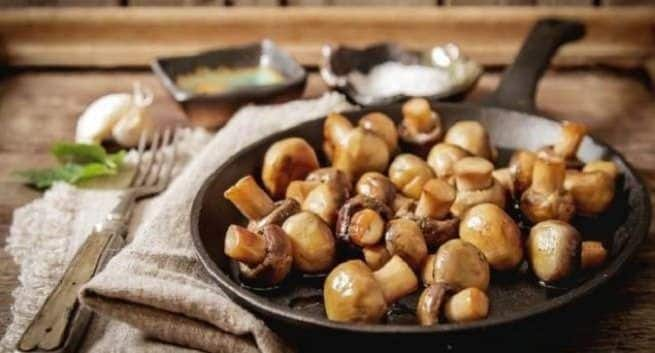Don’t Miss Out on the Latest Updates.
Subscribe to Our Newsletter Today!
World Lupus Day 2019: The best and worst foods for this condition

Foods play an important role in helping you manage lupus, an autoimmune inflammatory disease that affects many parts of your body. On this World Lupus Day, we help you make an informed choice of foods.
According to the estimates of the Lupus Foundation of America, globally, at least 5 million people have lupus in some form or the other. Evidences suggest that women have a much higher chance of being affected by lupus than men. However, awareness about this dangerous autoimmune disease, which leads to inflammation in various parts of your body, is still very low. So, World Lupus Day is celebrated on the 10th of May all over the world to educate more people about the condition.
Lupus occurs when your immune system becomes overactive and attacks your normal healthy cells and tissues affecting any part of the body starting from heart, kidney and lungs, to central nervous system, joints, skin and blood. If you are suffering from this life-long disease, you may experience a wide range of symptoms like fatigue, mouth ulcers, pain or swelling in joints and muscles, fever, hair loss, arthritis, seizure, skin rashes, etc. There are different types of lupus namely systemic lupus erythematosus, discoid, drug-induced, and neonatal lupus. Though the exact cause of this disease is unknown, certain factors including hormonal imbalance, viral infections, genetic factors, environmental toxins high levels of female hormones and certain medicines can increase your risk of lupus lupus. As its symptoms are not specific and resembles those of the other conditions, it is quite difficult to diagnose the condition. To confirm lupus, your doctor will suggest a battery of tests including blood test, urine test, tissue biopsies, imaging tests, etc.
Sadly, there is no specific treatment option available for this disease. However, certain lifestyle changes and medications can help reduce the symptoms. There are certain anti-inflammatory foods that can help you manage the condition and then there are those inflammatory ones that can trigger the symptoms. Diet acts as one of the most significantfactors in shaping our microbiota (gut flora), preventing some conditions and helping us manage their symptoms, says Ritika Samaddar, Regional Head of Dietetics, Max Healthcare, Delhi. According to the Lupus Foundation of America, The scarcity of lupus-specific diet and nutrition information remains a great frustration. But research has given us insight into foods and lifestyle choices that can help diminish the harmful effects of lupus. In particular, there are foods that can affect the body s inflammatory response. Therefore, it extremely important to make smart food choices when it comes to the management of lupus symptoms. On this World Lupus Day, we help you make an informed choice and live better.
Also Read
World Lupus Day food tip #1: Go for anti-inflammatory foods
[caption id="attachment_665790" align="alignnone" width="655"] Anti-inflammatory foods like oats will help you curb the symptoms of lupus. Shutterstock[/caption]
Anti-inflammatory foods like oats will help you curb the symptoms of lupus. Shutterstock[/caption]
While celebrating World Lupus Day, we shed some light on why you should go for anti-inflammatory foods if you are suffering from this condition. Lupus is an inflammatory disease and therefore eating inflammatory foods like refined carbohydrates, sugar, refined flour, aerated drinks, junk foods that contain additives, colour, preservative etc. can further aggravate the condition. Therefore, you are advised to go for anti-inflammatory foods like complex carbohydrates including oats, quinoa and millets. These are considered not only effective to reduce lupus symptoms but also for other diseases like arthritis, says Samaddar. Arthritis could be one of the symptoms of lupus.
World Lupus Day food tip #2: Choose organic and unprocessed foods
[caption id="attachment_665784" align="alignnone" width="655"] Legumes are loaded with nutrients and minerals which helps you manage the symptoms of lupus. Shutterstock[/caption]
Legumes are loaded with nutrients and minerals which helps you manage the symptoms of lupus. Shutterstock[/caption]
If you are suffering from lupus, your immune system is already compromised. In that case, it becomes extremely important for you to avoid exposure to chemicals and heavy metals. Processed foods are commonly packaged products containing synthetic additives, toxins or pesticides that can worsen your condition, says Samaddar. Organic foods, on the other hand, are filled with beneficial nutrients like antioxidants, vitamins and minerals. Apart from organic foods you can go for unprocessed foods like whole grains, vegetables, legumes, etc.
World Lupus Day food tip #3: Eat foods rich in vitamins and calcium
[caption id="attachment_665783" align="alignnone" width="655"] Mushrooms are a rich source of calcium and vitamin D that helps you strengthen your bones to reduce the risk of osteoporosis. Shutterstock[/caption]
Mushrooms are a rich source of calcium and vitamin D that helps you strengthen your bones to reduce the risk of osteoporosis. Shutterstock[/caption]
As part of lupus treatment, doctors prescribe steroid medications which may lead to significant bone loss and increase the risk of osteoporosis. In that case, you need to make sure that your diet contains foods that are rich in calcium and vitamin D. Consuming these two nutrients together is more beneficial than getting just one, says Samaddar. Calcium is the building block of bone. It helps keep your bones healthy and strong. Vitamin D actually helps your body to effectively absorb vitamin C and calcium. Some of the dietary sources of calcium and vitamin D are cheese, beans, yogurt, spinach, broccoli, mushrooms, fish oil, etc.
World Lupus Day food tip #4: Opt for omega-3 fatty acids
[caption id="attachment_665782" align="alignnone" width="655"] Walnuts can help decline the depressive symptoms in lupus patients. Shutterstock[/caption]
Walnuts can help decline the depressive symptoms in lupus patients. Shutterstock[/caption]
According to a study published in the journal PLOS ONE, consuming foods rich in omega-3 fatty acids can stop lupus triggers. Lupus is a chronic inflammatory disease and omega-3 fatty acids are known to have anti-inflammatory effects, explains Samaddar. Another study presented at the 2017 ACR/ARHP Annual Meeting in San Diego, revealed that higher intake of omega-3 fatty acids is linked to better sleep quality and a decrease in depressive symptoms in lupus patients. Some of the dietary sources of omega-3 fatty acids are nuts, fish like salmon, flaxseeds, walnuts, kidney beans, soybean oil, etc.
World Lupus Day food tip #5: Eat probiotic foods
[caption id="attachment_665781" align="alignnone" width="655"] Yogurt is a good probiotic option for lupus patients. Shutterstock[/caption]
Yogurt is a good probiotic option for lupus patients. Shutterstock[/caption]
The bacteria in your gut plays a significant role in your overall health. They help control your immune system. But when the balance between good and bad bacteria in the gut disturbed, your immune system may get attacked by certain internal as well as external factors resulting in health problems including autoimmune diseases like lupus. According to a study published in the journal Annals of the Rheumatic Diseases, people with lupus have been found with higher amounts of some specific bacteria in their gut, along with increased levels of antibodies to those bacteria. Probiotics will help you bring back the balance between the good and bad bacteria. Probiotic foods like yogurt, kefir, pickles, etc. will also help reduce the inflammation caused by lupus, says another study published in the journal Microbiome.
World Lupus Day food tip #6: Avoid having sodium-rich foods
[caption id="attachment_665780" align="alignnone" width="655"] Sausages are rich in sodium which can worsen your condition, if you are suffering from lupus. Shutterstock[/caption]
Sausages are rich in sodium which can worsen your condition, if you are suffering from lupus. Shutterstock[/caption]
Foods including salted nuts, frozen meat, fried foods, sausage, etc. are rich in sodium and are not considered good for lupus patients. This autoimmune disease can increase your risk of kidney damage, a disease worsened by high sodium levels in the body. Keeping salt levels low in your body can help prevent fluid retention, worsened swelling and electrolyte imbalances, all of which are associated with poor kidney function.
World Lupus Day food tip #7: Stay away from alcohol and caffeine
[caption id="attachment_665779" align="alignnone" width="655"] Alcohol can create anxiety and worsen inflammation in your body. Shutterstock[/caption]
Alcohol can create anxiety and worsen inflammation in your body. Shutterstock[/caption]
If you are suffering from lupus, alcohol can create anxiety and worsen inflammation in your body. Also, it can damage your liver, increase pain, and cause dehydration and sleep-related problems. Caffeine can potentially reduce the amount of iron in your body. Iron is extremely important in preventing anaemia, a common complication associated with lupus.


